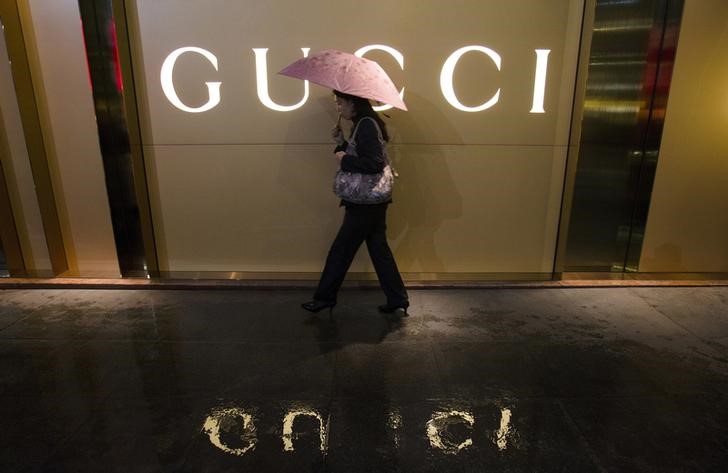MILAN (Reuters) - Italian fashion house Gucci said on Monday it would strengthen controls on its suppliers after a television programme said that Chinese workers assembling its handbags in Italy were working more than three times their contracted hours.
The head of a Gucci subcontractor told an investigative programme broadcast by RAI state television on Sunday that Gucci was aware it irregularly employed Chinese workers.
Aroldo Guidotti of subcontractor Mondo Libero (Free World) said the employees toiled away for as long as 14 hours a day, while they were supposed to work only for four hours, to assemble handbags that he sold to Gucci for 24 euros.
The bags sell in shops for around $1,000.
In a statement responding to the "Report" TV show, Gucci said it had acted properly but pledged to raise the number of inspections at its suppliers and take more effective action where needed.
Working conditions in plants producing garments and accessories have become an increasingly global issue as activists and trade unionists campaign against long hours and low wages in developing countries and among immigrants in industrialised states.
The Tuscan fashion house, part of French luxury group Kering (PA:PRTP), said it had carried out numerous inspections at Mondo Libero, which is based near Florence, and that the supplier had proved that it had addressed and mostly solved irregularities in working conditions.
Gucci added that it carries out around 1,300 audits per year of its 576 Italian suppliers. Mondo Libero, it said, accounts for just 0.2 percent of the group's production of leather goods.
"Hidden and inappropriately used cameras, shooting carefully selected supplier companies (three out of a total 576), do not provide for a true or accurate representation of Gucci and its supply chain policies and procedures," the company said.
Gucci also said "Report" wrongly compared the final price of a bag with the cost of assembling it, leaving out the cost of raw materials or the cutting, packaging and shipping expenses involved. Shares in Kering rose by 0.8 percent.

Kering last month ousted the chief executive and creative director of the Florentine label, which dates back to the 1920s, because of falling sales.
(Reporting by Valentina Za; Editing by Tom Heneghan, Greg Mahlich)